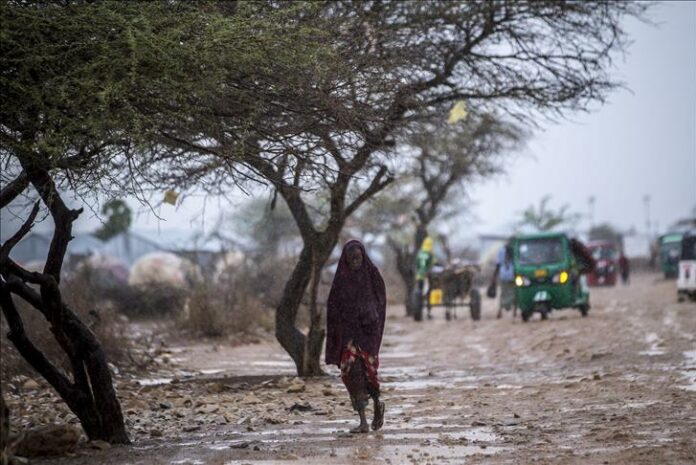By: Michaella Faith Wright
As the rainy season sweeps across The Gambia, the nation’s transportation infrastructure is put to the test. Flooded roads, stalled vehicles, and interrupted journeys have become daily occurrences. Turntable hit the streets to capture the realities faced by everyday commuters, market vendors, and drivers, uncovering a narrative of struggle, resilience, and calls for urgent action.
Hawa Jobe, Market Vendor at Sbec by Salaji:
“During the rainy season, it becomes nearly impossible to get to the market on time. The roads are so flooded that taxis refuse to come this way. When I finally get here, my goods are sometimes soaked. It’s frustrating because my livelihood depends on this. I’ve had days where I’ve lost significant income because customers don’t show up either, unable to navigate the floods themselves. We need better drainage systems and road maintenance to keep us connected.”
Hawa’s plight is echoed by many market vendors who rely on daily sales to support their families. The rains not only hinder their ability to reach the market but also affect the condition of their products, leading to financial losses.
Lamin Sanyang, Taxi Driver:
“The rains make driving very dangerous. Potholes are hidden under the water, and it’s easy to damage the car. Sometimes I have to turn down rides to certain areas because it’s just not worth the risk. It affects my income greatly. I remember last week, my car got stuck in the mud, and I had to call a tow truck. The repair costs eat into my earnings, and it’s hard to make ends meet during this season.”
Lamin’s experience highlights a broader issue of road safety and vehicle maintenance. Taxi drivers, who form a vital part of the public transport system, find themselves at a crossroads, weighing the risks of damaged roads against their need to earn a living.
Fatoumata Drammeh, Student:
“School days become so stressful. I have to leave the house much earlier to avoid being late because the buses are always delayed. Sometimes, I end up missing classes because the roads are too bad. It’s really affecting our education. We’ve had instances where the school bus couldn’t pick us up because it was stuck. Education is important, but the infrastructure is failing us.”
For students like Fatoumata, the rainy season is more than just an inconvenience; it’s a barrier to education. The delays and absences caused by transportation issues can have lasting impacts on their academic performance and future opportunities.
Bakary Njie, Commuter:
“Public transport is a nightmare in the rain. Buses and taxis are scarce, and the few that are running are packed. I have to walk long distances in the rain, and it’s really tough. We need better infrastructure to handle the rainy season. Last month, I missed an important job interview because the bus was delayed. This is not just a problem for a few; it affects all of us.”
Bakary’s story is a testament to the broader societal impacts of transportation challenges. Commuters face daily struggles that can affect their professional lives and economic stability.
Amie Touray, Healthcare Worker:
“Getting to the hospital on time is crucial, but the rainy season makes it a struggle. There have been times when I’ve been late for shifts because of traffic jams caused by the rain. It’s not just an inconvenience; it’s a matter of life and death. We’ve had emergencies where patients couldn’t reach the hospital in time because of the flooded roads. It’s heartbreaking and something that shouldn’t happen.”
For healthcare workers like Amie, timely access to their workplaces is vital. The rainy season’s impact on transportation can have dire consequences, underscoring the need for immediate infrastructure improvements.
Government Response and Future Prospects:
The sentiments shared by these individuals highlight a critical issue that requires urgent attention. The Ministry of Road and Transport has expressed a commitment to improving the country’s infrastructure, but the current state of the roads during the rainy season shows there is much work to be done. Recently, the ministry announced plans to invest in better drainage systems and road maintenance, but the implementation and effectiveness of these measures remain to be seen.
As The Gambia continues to grow, addressing these transportation challenges is essential not only for daily commuters but for the overall development of the nation. The voices from the ground are clear – it’s time for real, impactful change. Investments in infrastructure, coupled with effective planning and execution, are necessary to mitigate the adverse effects of the rainy season on transportation.
The rainy season will come again next year, but with proactive measures and a commitment to change, the experiences of Hawa, Lamin, Fatoumata, Bakary, and Amie can become tales of the past rather than ongoing struggles. The government’s response will determine whether The Gambia can turn these challenges into opportunities for growth and development.
The resilience of Gambians shines through these interviews, reflecting a collective hope for a future where transportation during the rainy season is no longer a hurdle but a smooth journey.




